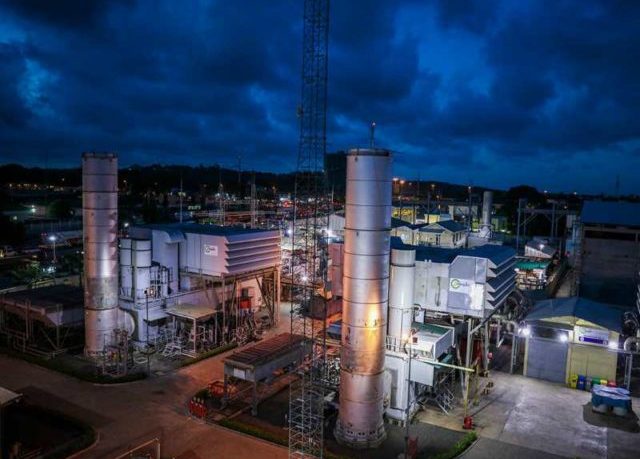- About 25 years ago, the Tanzanian Government developed a Master Plan and invited tender bids which resulted in the Songas gas power project coming to fruition.
This October marks 16 years since former President Benjamin Mkapa officially commissioned the Songas gas to power project, which uses Tanzania’s natural gas resource for electricity generation at the Songas Ubungo power plant. To date, Songas has continued to quietly demonstrate, that it is a world-class example of a successful Public-Private Partnership (PPP) across Africa.
The Songas gas power project was conceived as a least-cost power supply project, under the 1991 Power System Master Plan. The project was implemented after a thorough international competitive tender.
The government of Tanzania carefully reviewed and approved the project and, in 2001, the project reached financial close and the construction phase was initiated. In 2004, the project was completed, with a new plant expansion being carried out in 2005.
Songas ownership today is mainly comprised of Globeleq, which owns 54.1%, and the Tanzanian government which, through shares held by TANESCO, TPDC, and TDFL, owns approximately 40% of Songas.
Commitment to the Songas gas power project
During the severe drought from 2012 to 2016, dependence on expensive heavy fuels generation grew exponentially. Songas continued to provide much needed electricity despite payment shortfalls.
While high-cost projects were discontinued, TANESCO, supported by the government, ensured that the Songas payment arrears have been gradually reduced after working with Songas and reaching an agreement in 2016 that would see payment obligations fulfilled.
To date, this partnership has resulted in TZS 166 billion ($72 million) being paid to the government in dividends, approximately TZS 147 billion ($63 million) in corporate tax, TZS 251 billion ($108 million) in VAT and according to TPDC estimates, by using domestic gas instead of imported fuel, Songas has saved the Tanzanian economy more than TZS 11 trillion ($5 billion) since it began its operations in 2004. The partnership demonstrates the commitment by the government through the ministry of energy and its entities to provide affordable and reliable power.

Songas sells electricity to TANESCO at less than $0.06 cents/kWh, and TANESCO then sells that power at roughly $0.11c/kWh. From 2012 to 2020, Songas’ electricity generating plant has had an availability of 96.0%, which matches world class standards.
Over the past few years, the Tanzanian government has continued to reinforce its commitment to the project through the steady payments to Songas, a low-cost provider of thermal electricity without fail.
Songas’ partners believe that these government actions give real long-term confidence to a project and its investors. This also explains why Songas’ international investors are so keen to seek further opportunities and new partnerships in Tanzania in the near future.
Despite this positive trajectory, many Tanzanians may not have a full appreciation for the Songas project and its implications in the country’s economic development.
Socio-economic impact
The company also epitomises the ideal of a transfer of technology and human capacity development. Of the 73 Songas employees, 71 out of 73 staff are Tanzanian including the Managing Director and Plant Manager.
In terms of investing in community programmes, Songas invested TZS 1.1 billion in 2019 focusing mainly on education, health and environmental conservation – impacting over 66,000 people.
The project has created a pathway to future PPPs and other investment vehicles in the country by boosting confidence that Tanzania is a safe and steady platform for investors that are committed to businesses that are beneficial to Tanzania.
A successful PPP project should benefit both the country and the investor, which should then lead to new investment opportunities after a successful track record.
As Tanzania aims at becoming a strong and competitive industrial economy by 2025, the success of Songas, and the outstanding support of the Government is a story that needs to be told more so that potential investors can better understand the opportunities in Tanzania to continue to grow the economy.
Author: Guest Contributor
This article was originally published on ESI Africa and is republished with permission with minor editorial changes.















